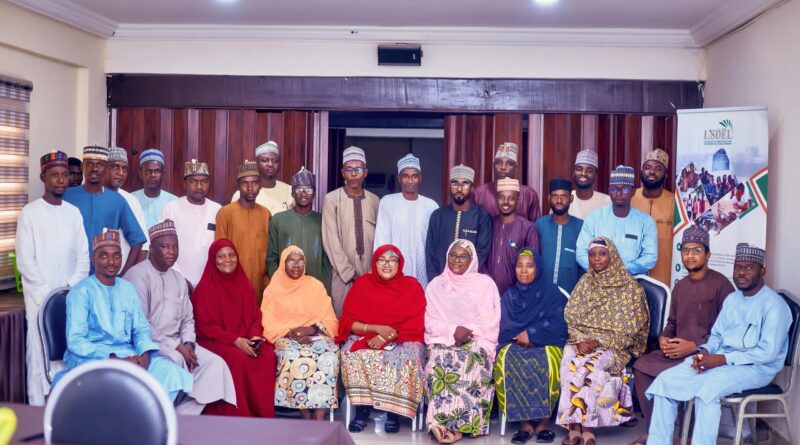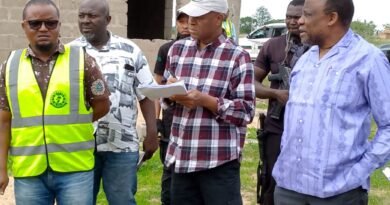KSHoA, LISDEL, EngenderHealth Hold Strategic Session on PHC Accountability in Kano
By Mustapha Salisu
The Kano State House of Assembly (KSHoA), in collaboration with the Legislative Initiative for Sustainable Development (LISDEL), EngenderHealth, the International Society of Media in Public Health (ISMPH) and CCSI has hosted a two-day strategic session to review findings from a post-field Primary Health Care (PHC) Joint Accountability Spot Check carried out across 18 local government areas of Kano State.
The event, held on Monday and Tuesday at Tahir Guest Palace, brought together the legislative arm of the government, relevant agencies, civil society groups, media, and other key stakeholders to deliberate on the outcome of the oversight exercise.
According to Muhammad Shuaibu. PhD, State Lead of LISDEL, the initiative represents a new model of legislative oversight by combining the efforts of lawmakers, the executive, and civil society groups.
“Ordinarily, legislators have the mandate to conduct oversight functions, but this one came differently. It was a collaboration between the Assembly, executive agencies, CSOs, and the media, where we went around facilities in 18 LGAs with low maternal and child health indices,” he explained.
The spot check, conducted through a structured checklist, assessed facilities on critical areas such as service delivery, funding flow, infrastructure, and community engagement. Findings from the exercise, Shuaibu noted, will serve as evidence for informed decision-making, particularly in improving PHC service delivery.
“What makes this model unique is that the report is being discussed openly with all stakeholders and will be tabled before the floor of the House. This ensures transparency, follow-up, and advocacy for implementation,” he added.
He emphasized that one of the key expectations is for the findings to influence the proposed 2026 budget, especially in increasing funding for primary health care services.
“Issues of maternal mortality needs to be addressed based on evidence from this report. We will appreciate to see changes in terms of improved decision-making”
“This should not be a one-off initiative tied to this project. It should become a culture, to be conducted on quarterly basis, to ensure continuity, sustainability, and accountability in the health sector” Shuaibu said.
On his part Comr. Sani M. Muhammad Burumburum, Zonal Director of the Kano State Primary Health Care Management Board (Gwale Zone) and Chairman of the Forum of Zonal Directors in the state, said:
“This engagement is very interesting and highly appreciated. In my over 34 years of service, I have never witnessed a situation where members of the House of Assembly personally visit health facilities for supportive supervision to assess what is happening on the ground. This initiative is commendable and should be sustained, as it will greatly enhance the work of primary healthcare workers in our facilities.
I personally participated in the exercise in two LGAs, Doguwa and Tofa. The supervision was not fault-finding but rather a supportive approach to commend what has been done well and correct areas that need improvement. This way, communities will feel more connected to the government through improved healthcare delivery services.
My strong appeal to the House of Assembly is to facilitate the recruitment of more staff into our primary healthcare facilities. Primary healthcare is the foundation of our health system, and when adequately staffed and equipped, it will reduce the burden on secondary and tertiary facilities, since 90–95% of healthcare needs are managed at the primary level. Strengthening this sector is key to improving healthcare delivery in the state.”
PRIME TIME NEWS reports that, stakeholders at the session also stressed the need for regular spot checks beyond maternal and child health, suggesting that the process be institutionalized by the State Assembly as a routine oversight mechanism.
Highlights of the strategic session featured presentations led by legislative staff mandated by Assembly members, with participants agreeing to follow up on actionable points and ensure that recommendations are fully implemented.





